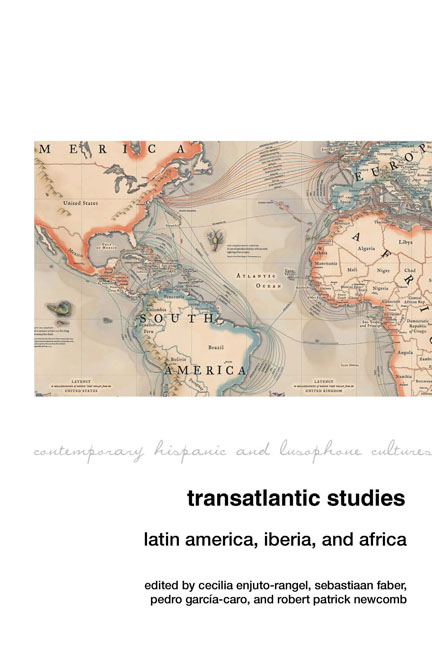Book contents
- Frontmatter
- Contents
- Introduction: Transatlantic Studies: Staking Out the Field
- Transatlantic Methodologies
- Transatlantic Linguistic Debates
- Transatlantic Displacement
- Transatlantic Memory
- Transatlantic Postcolonial Affinities
- Transatlantic Influence
- Epilogue: The Futureâif There Is OneâIs Transatlantic
- Index
34 - It's ComplicatedâOrtega y Gasset's Relationship with Argentina
- Frontmatter
- Contents
- Introduction: Transatlantic Studies: Staking Out the Field
- Transatlantic Methodologies
- Transatlantic Linguistic Debates
- Transatlantic Displacement
- Transatlantic Memory
- Transatlantic Postcolonial Affinities
- Transatlantic Influence
- Epilogue: The Futureâif There Is OneâIs Transatlantic
- Index
Summary
Hoy estamos en alborada, es decir, en la hora de preparar a la faena. El éxito depende de la exactitud, de la perfección en cada punto de la obra; y sobre todo de que pongamos al hombre adecuado en el lugar adecuado.
[Today we have reached the dawn, that is, the hour for preparing for the task at hand. Success depends upon the exactitude, upon the perfection of each point within the greater work; and above all that we put the proper man in the proper place.]
José Ortega y Gasset, “Discurso de despedida en la Institución Cultural de Buenos Aires” 1916 (1981: 43)In 1916, Hipólito Yrigoyen, leader of the Unión Cívica Radical, is elected President of Argentina, thereby giving credence to the possibility of a liberal democratic government after years of oligarchic rule. Argentina also finds itself in the midst of an economic boom that propels the country onto the world stage and coincides with a massive wave of immigration from abroad. Across the Atlantic, Spain finds itself mired in a national crisis after the Desastre del 98 and the loss of its last remaining colonies in the Americas and the Pacific. Despite the fact that Argentina's circumstances appeared to be more favorable than those of its former colonizer at the time, elites and other conservative elements in both countries felt that a political, spiritual, and existential crisis was at hand in the form of the ascent of the modern masses. For the masses personified the threat of anarchic, communistic, and democratic disorder at home and abroad. As a result, these conservative forces combined and conspired in their respective countries and across the Atlantic to restore power to the old guard, or some newfangled version of it, and often did so by any means necessary. Whence the rise of Miguel Primo de Rivera, Francisco Franco, La Falange, and fascism in Spain, which, in certain ways, paralleled the rise of el nacionalismo, José Félix Uriburu, Agustín P. Justo, and the attendant década infame in Argentina.4 Although these reactionary movements included the masses within their respective programs to a certain degree, those in power also ensured that the masses were excluded from power and manipulated from above. Consequently, power was not given over to the many but rather remained in the hands of the few.
- Type
- Chapter
- Information
- Transatlantic StudiesLatin America, Iberia, and Africa, pp. 418 - 431Publisher: Liverpool University PressPrint publication year: 2019

